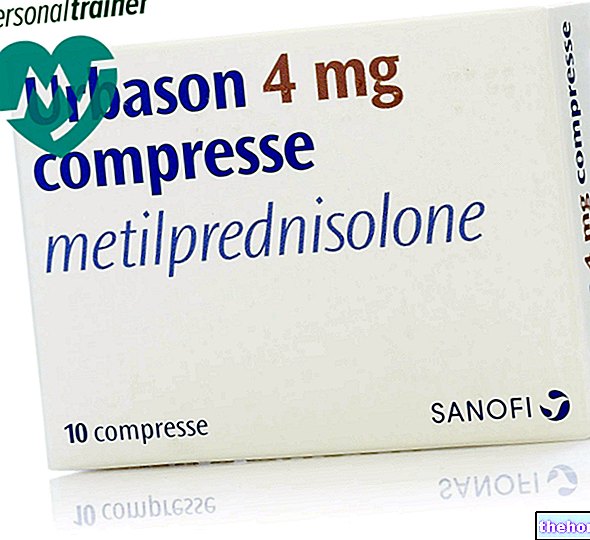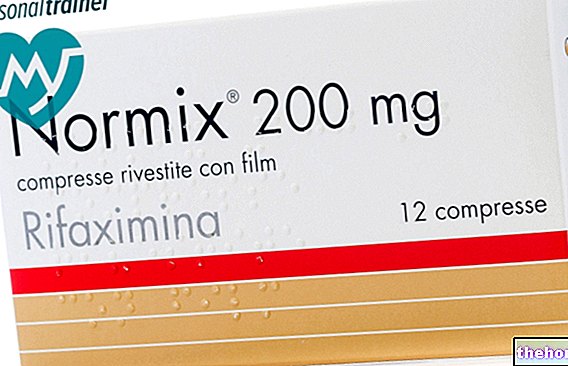Active ingredients: Donepezil (Donepezil hydrochloride)
ARICEPT 5 mg film-coated tablets
ARICEPT 10 mg film-coated tablets
Aricept package inserts are available for pack sizes: - ARICEPT 5 mg film-coated tablets, ARICEPT 10 mg film-coated tablets
- ARICEPT 5 mg orodispersible tablets, ARICEPT 10 mg orodispersible tablets
Why is Aricept used? What is it for?
ARICEPT (donepezil hydrochloride) belongs to a group of medicines called acetylcholinesterase inhibitors. Donepezil increases the levels in the brain of a substance (acetylcholine) involved in memory function by slowing its degradation. This medicine is used to treat the symptoms of dementia in people diagnosed with mild to moderate Alzheimer's disease. Symptoms include memory loss, confusion, and behavioral changes. As a result, people with Alzheimer's disease find it increasingly difficult to carry out normal daily activities.
ARICEPT is indicated for adult patients only
Contraindications When Aricept should not be used
Do not take ARICEPT
- If you are allergic (hypersensitive) to donepezil hydrochloride, piperidine derivatives or any of the other ingredients of ARICEPT listed in section 6.
Precautions for use What you need to know before taking Aricept
Take care with ARICEPT
Tell your doctor or pharmacist before starting ARICEPT if you have or have suffered from:
- stomach or duodenal ulcers
- convulsive spasms or convulsions
- heart condition (irregular or very slow heartbeat)
- asthma or other long-term lung disease
- Liver problems or hepatitis
- difficulty passing urine or mild kidney problems
Also tell your doctor if you are pregnant or suspect pregnancy.
Interactions Which drugs or foods can modify the effect of Aricept
Taking ARICEPT with other medicines
Tell your doctor or pharmacist if you are taking or have recently taken any other medicines, including those that were not prescribed by your doctor but bought without a prescription at a pharmacy. This also applies to any medicines you may take in the future if you continue to take ARICEPT. These drugs could in fact reduce or strengthen the effects of ARICEPT.
In particular, tell your doctor if you are taking any of the following medicines:
- other medicines to treat Alzheimer's disease, e.g. galantamine
- pain relievers or medicines to treat arthritis, e.g. aspirin, non-steroidal anti-inflammatory drugs (NSAIDs) such as ibuprofen or diclofenac sodium
- anticholinergic medicines, eg. tolterodine
- antibiotics, eg. erythromycin, rifampicin
- antifungals, eg. ketoconazole
- antidepressants eg. fluoxetine
- anticonvulsants eg. phenytoin, carbamazepine
- medicines to treat heart disease e.g. quinidine, beta blockers (propanolol and atenolol)
- muscle relaxation medicines eg. diazepam, succinylcholine
- general anesthetics
- medicines that can be bought without a prescription, eg. herbal preparations
If you are going to have an "operation that requires" general anesthesia you should tell your doctor and anesthetist that you are taking ARICEPT. This is because the medicine can affect the amount of anesthetic you need.
ARICEPT can be used in patients with mild or moderate kidney disease or liver disease. If you have kidney or liver disease, please tell your doctor before starting treatment. Patients with severe liver disease should not take ARICEPT.
Tell your doctor or pharmacist the name of the caregiver. This person will help you take the medicine as prescribed.
Taking ARICEPT with food and drink
Food does not affect the effect of ARICEPT. Do not take ARICEPT at the same time as alcohol, as alcohol may change its effect.
Warnings It is important to know that:
Pregnancy and breastfeeding
ARICEPT must not be taken while breastfeeding. If you are pregnant or planning to become pregnant, ask your doctor for advice before taking any medicine.
Driving and using machines
Alzheimer's disease may affect your ability to drive or use machines and you should not do these activities unless your doctor has told you there are no risks. In addition, the medicine can cause tiredness, dizziness and muscle cramps. If you notice any of these effects, you should not drive or use machines.
Important information about some of the ingredients of ARICEPT
This medicinal product contains lactose. If your doctor has told you that you are intolerant to some sugars, contact your doctor before taking ARICEPT.
Dose, Method and Time of Administration How to use Aricept: Posology
How much ARICEPT should you take?
You will usually start taking 5 mg (one white tablet) every night. After one month, your doctor may tell you to take 10 mg (one yellow tablet) every evening. Swallow the ARICEPT tablet with water in the evening before going to bed.
The strength of the tablet you take may vary depending on when you started taking the medicine and according to your doctor's recommendations. The maximum recommended dose is 10 mg every evening. Always follow your doctor or pharmacist's advice on how and when to take your medicine. Do not change the dose without your doctor's advice.
How long should I take ARICEPT?
Your doctor or pharmacist will tell you how long to take the tablets. You should see your doctor from time to time to evaluate your treatment and symptoms.
If you stop taking ARICEPT
Do not stop treatment unless your doctor tells you to. If you stop using ARICEPT the benefits will gradually disappear.
Overdose What to do if you have taken too much Aricept
If you take more ARICEPT than you should
DO NOT take more than one tablet per day. Contact your doctor immediately if you take more tablets than you should. If you cannot contact your doctor, go to the nearest emergency room immediately. Always take the tablets and the pack with you to the hospital so that the doctor knows how much medicine you have taken. Symptoms of overdose are nausea and vomiting, drooling, sweating, slow heart rate, low blood pressure (slight loss or dizziness on standing), breathing problems, unconsciousness and fits or fits.
If you forget to take ARICEPT
If you forget to take a tablet, take it the following day at the usual time. Do not take a double dose to make up for a forgotten one. If you forget to take your medicine for more than a week, tell your doctor before taking any other medicine.
Side Effects What are the side effects of Aricept
Like all medicines, ARICEPT can cause side effects, although not everybody gets them.
The following side effects have been reported during treatment with ARICEPT. Tell your doctor if any of the following effects occur when taking ARICEPT.
Serious side effects:
You should contact your doctor immediately if these serious effects appear. Urgent medical treatment may be needed.
- Liver damage eg. hepatitis. Symptoms of hepatitis are nausea and vomiting, loss of appetite, generally feeling unwell, fever, itching, yellowing of the skin and eyes, and dark urine (affects 1 to 10 users in 10,000).
- Stomach or duodenal ulcers. Symptoms of ulcers are stomach pain and a feeling of stomach discomfort (indigestion) between the navel and the breastbone (affects 1 to 10 in 1,000 patients)
- Bleeding in the stomach or intestines. This may result in the elimination of black tarry stools or live blood from the rectum (affects 1 to 10 users in 1,000)
- Seizures or fits (affects 1 to 10 users in 1,000)
Very common side effects (affects more than 1 in 10 patients):
- diarrhea
- nausea or vomiting
- headache
Common side effects (affects 1 to 10 users in 100):
- muscle cramps
- tiredness
- difficulty sleeping (insomnia)
- common cold
- loss of appetite
- hallucinations (seeing or hearing things that don't really exist)
- abnormal dreams including nightmares
- agitation
- aggressive behavior
- fainting
- dizziness
- stomach discomfort
- rash
- itch
- uncontrolled loss of urine
- ache
- accidents (patients may be more prone to falling and accidentally injuring themselves)
Uncommon side effects (affects 1 to 10 users in 1,000):
- slow heartbeat
Rare side effects (affects 1 to 10 users in 10,000):
- stiffness, tremors or involuntary movements especially of the face and tongue but also of the arms and legs.
If any of the side effects gets serious, or if you notice any side effects not listed in this leaflet, please tell your doctor or pharmacist.
Expiry and Retention
DO NOT use ARICEPT after the expiry date stated on the label. The expiry date refers to the last day of the month.
Do not store this medicine above 30 ° C. Keep out of the reach and sight of children.
If your doctor tells you to stop treatment, you must return what you have not used to the pharmacist.
Medicines should not be disposed of via wastewater or household waste. Ask your pharmacist how to throw away medicines you no longer use. This will help protect the environment.
Composition and pharmaceutical form
What does ARICEPT contain?
- The active ingredient is donepezil hydrochloride. The 5 mg tablet contains 5 mg donepezil hydrochloride and the 10 mg tablet contains 10 mg donepezil hydrochloride.
- The other ingredients are: lactose monohydrate, maize starch, microcrystalline cellulose, hydroxypropyl cellulose, magnesium stearate, hypromellose, talc, macrogol and titanium dioxide (E171).
- Furthermore, only the 10 mg tablet contains synthetic yellow iron oxide (E172).
What does ARICEPT look like?
- White 5 mg tablets, debossed with ARICEPT on one side and 5 on the other.
- 10 mg yellow tablets, debossed with ARICEPT on one side and 10 on the other
What does a pack of ARICEPT contain?
The tablets are available in packs of 28 film-coated tablets.
Source Package Leaflet: AIFA (Italian Medicines Agency). Content published in January 2016. The information present may not be up-to-date.
To have access to the most up-to-date version, it is advisable to access the AIFA (Italian Medicines Agency) website. Disclaimer and useful information.
01.0 NAME OF THE MEDICINAL PRODUCT
ARICEPT 10 MG TABLETS COATED WITH FILM
02.0 QUALITATIVE AND QUANTITATIVE COMPOSITION
Each donepezil hydrochloride 10 mg tablet is equivalent to donepezil base 9.12 mg.
174.33 mg of lactose / film-coated tablet
For the full list of excipients, see section 6.1.
03.0 PHARMACEUTICAL FORM
Film-coated tablet.
Round, yellow biconvex tablets marked "ARICEPT" on one side and "10" on the other.
04.0 CLINICAL INFORMATION
04.1 Therapeutic indications
ARICEPT is indicated for the symptomatic treatment of mild to moderate Alzheimer's dementia.
04.2 Posology and method of administration
Adults / Elderly
Treatment should begin at a dose of 5 mg / day (once daily). ARICEPT should be taken orally in the evening, before bedtime. The 5 mg / day dose should be maintained for at least one month to assess early clinical responses to treatment and allow steady-state concentrations of donepezil hydrochloride to be achieved. After clinical evaluation of treatment administered for one month at a dose of 5 mg / day, the dose of ARICEPT can be increased to 10 mg / day (once daily). The maximum recommended daily dose is 10 mg / day. Doses above 10 mg / day have not yet been tested in clinical trials.
Treatment should be initiated and supervised by a physician experienced in the diagnosis and treatment of Alzheimer's dementia. Diagnosis should be made in accordance with accepted guidelines (eg DSM IV, ICD 10). Donepezil therapy should only be initiated if a person is available to assist the patient and to monitor the drug regularly. Maintenance therapy can continue as long as there is a therapeutic benefit for the patient and therefore the clinical benefit of donepezil. it should be regularly reassessed. When the therapeutic effect is no longer evident, the possibility of stopping treatment should be considered. Individual response to donepezil treatment cannot be predicted.
When the drug is discontinued, a gradual reduction of the beneficial effects of ARICEPT is observed.
Patients with renal and hepatic impairment
The same dosing regimen can be applied to patients with renal impairment, as clearance of donepezil hydrochloride is not affected in these patients.
Since increased drug exposure may occur in patients with mild to moderate hepatic impairment (see section 5.2), dose escalation should be made based on individual tolerability. No data are available in patients with severe hepatic impairment.
Children
Administration of ARICEPT in children is not recommended.
04.3 Contraindications
ARICEPT is contraindicated in patients with known hypersensitivity to donepezil hydrochloride, piperidine derivatives or any of the excipients contained in the formulation.
04.4 Special warnings and appropriate precautions for use
The use of ARICEPT in patients with severe Alzheimer's dementia, other forms of dementia, or memory impairment (eg, age-related impairment of cognitive function) has not been evaluated.
Anesthesia: ARICEPT, a cholinesterase inhibitor, can cause an increase in muscle relaxation similar to that caused by succinylcholine in patients under anesthesia.
Cardiovascular Disorders: Due to their pharmacological action, cholinesterase inhibitors may have vagotonic effects on heart rate (e.g. bradycardia). The effect of this mechanism may be particularly relevant in patients with "sinus node disease" or other supraventricular cardiac conduction disorders, such as atrioventricular or sinoatrial block.
Cases of syncope and seizures have been reported. When these patients are examined, the possibility of heart block or prolonged sinus pauses should be considered.
Gastrointestinal disorders: Patients who are most at risk for ulcer development, for example those with a previous history of ulcer or those on concomitant non-steroidal anti-inflammatory drugs (NSAIDs), should be monitored for any symptoms. However, clinical studies conducted with ARICEPT did not show, compared to placebo, an increased incidence of peptic ulcer or gastrointestinal bleeding episodes.
Genitourinary disorders: Cholinomimetic drugs can cause obstruction of urinary flow; however this was not observed in clinical trials with ARICEPT.
Neurological disorders: Seizures: Cholinomimetic drugs are thought to cause generalized seizures. However, seizures can also be a manifestation of Alzheimer's disease.
Cholinomimetic drugs can worsen or cause extrapyramidal symptoms.
Pulmonary disorders: Due to their cholinomimetic action, cholinesterase inhibitors should be prescribed with caution to patients with a history of asthma or obstructive pulmonary disease.
Concomitant administration of ARICEPT with other cholinesterase inhibitors, agonists or antagonists of the cholinergic system should be avoided.
Severe hepatic impairment: no data are available in patients with severe hepatic impairment.
This medicinal product contains lactose. Patients with rare hereditary problems of galactose intolerance, lactase deficiency or glucose-galactose malabsorption should not take this medicine.
Mortality in Vascular Dementia Clinical Studies
Three 6-month clinical studies were performed in subjects who met the NINDS-AIREN criteria for probable or possible vascular dementia (VaD). The NINDS-AIREN criteria are established to identify patients whose dementia appears to be due only to vascular causes and to exclude patients with Alzheimer's disease. In the first study, the mortality rate was 2/198 (1.0%) in the donepezil hydrochloride 5 mg group, 5/206 (2.4%) in the donepezil hydrochloride 10 mg group and 7/199 (3.5 %) in the placebo group. In the second study, the mortality rate was 4/208 (1.9%) in the donepezil hydrochloride 5 mg group, 3/215 (1.4%) in the donepezil hydrochloride 10 mg group, and 1/193 (0.5% ) in the placebo. In the third study, the mortality rate was 11/648 (1.7%) in the donepezil hydrochloride 5 mg group and 0/326 (0%) in the placebo. Combining the results of the three VaD studies, the mortality rate in the donepezil hydrochloride group (1.7%) was numerically higher than in placebo (1.1%), however this difference was not statistically significant. Most deaths in patients treated with both donepezil hydrochloride and placebo appear to result from various vascular causes, to be expected in the elderly vascular disease population. An analysis of all fatal and non-fatal vascular events did not show a difference between the donepezil hydrochloride and placebo group.
In the combined Alzheimer's disease studies (n = 4146) and when these Alzheimer's disease studies were combined with other dementia studies, including those in vascular dementia (total n = 6888), the death rate in the placebo group was numerically higher than that of the donepezil hydrochloride group.
04.5 Interactions with other medicinal products and other forms of interaction
Donepezil hydrochloride and / or its metabolites do not inhibit the metabolism of theophylline, warfarin, cimetidine or digoxin in humans. The metabolism of donepezil hydrochloride is not affected by concomitant administration of digoxin or cimetidine. Studies in vitro demonstrated that the cytochrome P450 isoenzyme 3A4, and to a lesser extent 2D6, are involved in the metabolism of donepezil. Drug interaction studies conducted in vitro showed that ketoconazole and quinidine, CYP3A4 and 2D6 inhibitors, respectively, inhibit the metabolism of donepezil. Therefore, these and other CYP3A4 inhibitors, such as itraconazole and erythromycin, and CYP2D6 inhibitors, such as fluoxetine, may inhibit the metabolism of donepezil. In a study in healthy volunteers, ketoconazole resulted in an increase in mean donepezil concentrations of approximately 30%. Enzyme inducers such as rifampicin, phenytoin, carbamazepine and alcohol may reduce donepezil levels. As the extent of an inhibitory or inductive effect is unknown, administration of the above drug combinations should be undertaken with care. Donepezil hydrochloride can interfere with drugs with anticholinergic activity. Synergistic activity is also possible with concomitant treatment based on drugs such as succinylcholine, other neuromuscular or cholinomimetic blockers or with beta-blockers that act on cardiac conduction.
04.6 Pregnancy and lactation
Pregnancy
There are insufficient data on the use of donepezil in pregnancy.
Studies in animals have not shown teratogenic effects, but have shown peri and postnatal toxicity (see section 5.3 Preclinical safety data). The potential risk for humans is unknown.
Aricept should not be used during pregnancy unless clearly necessary.
Feeding time
Donepezil is excreted in the milk of female rats. It is not known whether donepezil hydrochloride is excreted in human breast milk and clinical studies in breastfeeding women have not been conducted. Therefore, women on donepezil should avoid breastfeeding.
04.7 Effects on ability to drive and use machines
Donepezil has a mild or moderate influence on the ability to drive and use machines. Dementia can impair the ability to drive or use machines. Furthermore, donepezil can cause fatigue, dizziness and muscle cramps, especially in the initial phase of treatment or when the dosage is increased. The treating physician must continuously evaluate the ability of patients on donepezil to continue driving or operating complex machinery.
04.8 Undesirable effects
The most common adverse events are diarrhea, muscle cramps, fatigue, nausea, vomiting and insomnia.
Adverse reactions reported in more than a single case are listed below, classified by system organ and by frequency. Frequencies are defined as: very common (≥1 / 10) common (≥1 / 100,
* In the event of syncope or seizures, the possibility of developing heart block or prolonged sinus pauses should be considered (see section 4.4).
** Cases of hallucinations, abnormal dreams, nightmares, agitation and aggressive behavior resolved with dose reduction or discontinuation of treatment.
*** In case of hepatic dysfunction of unknown etiology, discontinuation of treatment with ARICEPT should be considered.
04.9 Overdose
Following a single oral dose of donepezil hydrochloride administered to mice and rats, a mean lethal drug dose of 45 mg / kg and 32 mg / kg, respectively, was calculated; this dose corresponds to approximately 225 and 160 times the maximum recommended human dose of 10 mg / day. Signs of dose-related cholinergic stimulation were observed in clinical studies in animals, including: reduction of spontaneous movements, prone position, limp walking, lacrimation, clonic convulsions, respiratory depression, salivation, myosis, muscle fasciculation and lowering of body temperature.
Overdose with cholinesterase inhibitors can cause cholinergic crises characterized by severe nausea, vomiting, salivation, sweating, bradycardia, hypotension, respiratory depression, collapse and convulsions. There is the possibility of an increase in muscle weakness which, in the presence of respiratory muscle involvement, can result in the patient's death.
As with all cases of overdose, general supportive measures should be used. Tertiary anticholinergics, such as atropine, can be used as an antidote in case of overdose of ARICEPT. Atropine sulfate intravenously is recommended at the dose necessary to achieve the desired effect: an initial dose of 1.0 to 2.0 mg E.V. with subsequent dose adjustment based on clinical response. Alterations in blood pressure and heart rate responses have occurred with other cholinomimetics administered concomitantly with quaternary anticholinergics such as glycopyrrolate. It is not known whether donepezil hydrochloride and / or its metabolites are eliminated by dialysis (hemodialysis, peritoneal dialysis, or haemofiltration).
05.0 PHARMACOLOGICAL PROPERTIES
05.1 Pharmacodynamic properties
Pharmacotherapeutic group: anti-dementia drugs, anticholinesterases.
ATC code: N06DA02.
Donepezil hydrochloride is a specific and reversible inhibitor of acetylcholinesterase, the most commonly found cholinesterase in the brain. Donepezil hydrochloride inhibits this enzyme with a potency in vitro equal to 1000 times that of butyrylcholinesterase, an enzyme mainly present outside the central nervous system.
Alzheimer's dementia
In Alzheimer's Dementia patients participating in clinical trials, administration of single daily doses of 5 mg or 10 mg ARICEPT resulted in steady-state "inhibition of" aceticolinesterase activity (measured in erythrocyte membranes). equal to 63.6% and 77.3%, respectively, when detected after drug administration. Inhibition of acetylcholinesterase (AChE) in erythrocytes following use of donepezil hydrochloride was observed to be related to changes recorded by the ADAS-cog scale, a sensitive scale used to assess specific aspects of cognitive function. The ability of donepezil hydrochloride to alter the course of underlying neurological disease has not been studied. Therefore, it is not possible to say that Aricept may have any effect on the evolution of the disease.
The efficacy of treatment with ARICEPT was evaluated in 4 placebo-controlled clinical trials, of which 2 were of 6 months duration and 2 of 1 year duration.
In clinical trials of 6 months duration, an analysis based on a combination of 3 efficacy criteria was performed at the conclusion of treatment with donepezil: ADAS-Cog (scale for measuring cognitive performance), Clinician Interview Based Impression of Change with Caregiver Input (scale for measuring global functions) e Activities of Daily Living Subscale of the Clinical Dementia Rating Scale (scale for measuring interpersonal and social relationships, household activities, hobbies and personal care).
Patients who responded to treatment were defined as all those who met the criteria listed below:
Answer = Improvement to ADAS-Cog by at least 4 points
No deterioration to the CIBIC +
No deterioration to the Activities of Daily Living Subscale of the Clinical Dementia Rating Scale
* p
** p
Aricept produced a statistically significant and dose-dependent increase in the proportion of patients who were judged responder to the treatment.
05.2 "Pharmacokinetic properties
Absorption: Maximum plasma levels are reached approximately 3-4 hours after oral administration. Plasma concentrations and area under the curve increase proportionally with dose. The terminal elimination half-life is approximately 70 hours and therefore multiple administration of single daily doses allows for a gradual achievement of steady state. Steady state is reached within approximately 3 weeks of initiation of therapy. Once steady state is reached, plasma concentrations of donepezil hydrochloride and related pharmacodynamic activity exhibit minimal change throughout the day.
Food intake does not alter the absorption of donepezil hydrochloride.
Distribution: Donepezil hydrochloride is 95% bound to plasma proteins. Plasma protein binding of the active metabolite 6-O-desmethyldonepezil is unknown. The distribution of donepezil hydrochloride in different body tissues has not been definitively studied. However, in a body mass distribution study conducted in healthy male volunteers, it was observed that 240 hours after administration of a single 5 mg dose of 14C-labeled donepezil hydrochloride, approximately 28% of the drug is not eliminated. . This finding suggests that donepezil hydrochloride and / or its metabolites can remain in the body for over 10 days.
Metabolism / Excretion: Donepezil hydrochloride is excreted unchanged in the urine and is metabolised by the cytochrome P450 system to several metabolites, some of which have not been identified. Following administration of a single 5 mg dose of C-labeled donepezil hydrochloride, plasma radioactivity, expressed as a percentage of the administered dose, was mainly present as unchanged donepezil hydrochloride (30%), 6-O-desmethyl donepezil ( 11% - the only metabolite with similar activity to donepezil hydrochloride), donepezil-cis-N-oxide (9%), 5-O-desmethyl donepezil (7%) and the 5-O glucuronide conjugate -desmethyl donepezil (3%). About 57% of the total administered radioactivity was eliminated in the urine (17% as unchanged drug) and 14.5% in the faeces; this fact suggests that biotransformation and urinary excretion are the main routes of elimination.
There is no evidence to suggest that donepezil hydrochloride and / or its metabolites re-enter the circulation at the enterohepatic level.
Plasma concentrations of donepezil decrease with a half-life of approximately 70 hours.
Gender, race and smoking do not cause clinically significant changes in the plasma concentrations of donepezil hydrochloride. The pharmacokinetics of donepezil have not been specifically studied in healthy elderly subjects or in patients with Alzheimer's or in patients with vascular dementia. However, the mean plasma concentrations in these patients closely match those found in healthy young volunteers.
Increased steady-state plasma concentrations of donepezil were observed in patients with mild to moderate hepatic impairment; the mean AUC increases by 48%, while the mean Cmax increases by 39% (see section 4.2).
05.3 Preclinical safety data
Extensive animal studies have shown that donepezil hydrochloride causes a small number of effects other than those within the drug's own pharmacological effects, consistent with its cholinergic stimulatory action (see section 4.9). Donepezil did not produce mutagenic effects in mutation tests conducted on bacterial and mammalian cells. Some clastogenic effects were observed in vitro at concentrations clearly toxic to cells and 3000 times greater than steady-state plasma concentrations. No clastogenic or genotoxic effects were observed in the model in vivo mouse micronucleus. Long-term carcinogenicity studies, conducted in both rats and mice, did not reveal any oncogenic potential.
Donepezil hydrochloride had no effect on the fertility of rats and no teratogenic effects were found in rats or rabbits, but had a slight effect on stillbirths and survival of premature infants when administered to pregnant rats at 50 times dosages. higher than the maximum dose used in humans (see section 4.6).
06.0 PHARMACEUTICAL INFORMATION
06.1 Excipients
Lactose monohydrate;
cornstarch;
microcrystalline cellulose;
hyprolose;
magnesium stearate.
The coating film contains:
talc;
macrogol;
hypromellose;
titanium dioxide "E 171";
yellow iron oxide "E 172".
06.2 Incompatibility
Not relevant.
06.3 Period of validity
3 years.
06.4 Special precautions for storage
Do not store above 30 ° C.
06.5 Nature of the immediate packaging and contents of the package
ARICEPT 10 mg: blister pack (PVC / aluminum) containing 28 tablets.
06.6 Instructions for use and handling
No special precautions are required.
07.0 MARKETING AUTHORIZATION HOLDER
Pfizer Italia S.r.l.
via Isonzo, 71 - 04100 Latina
08.0 MARKETING AUTHORIZATION NUMBER
ARICEPT 10 mg: AIC n. 033254020 / M
09.0 DATE OF FIRST AUTHORIZATION OR RENEWAL OF THE AUTHORIZATION
25 July 1997/10 January 2007
10.0 DATE OF REVISION OF THE TEXT
April 27, 2012




























